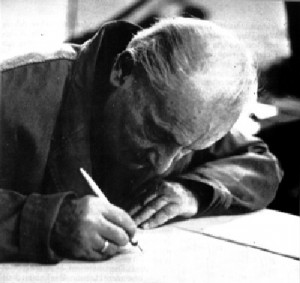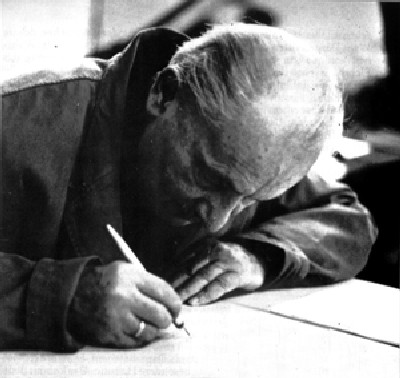I’m beginning to think research is useless. Not because it’s actually useless, but because people believe what they want to believe, regardless of research. This is especially true in the health, fitness, and sports space. When a study about red meat being unhealthy pops up, no one cares. Everyone knows the study is flawed and [...]
 I’m beginning to think research is useless. Not because it’s actually useless, but because people believe what they want to believe, regardless of research. This is especially true in the health, fitness, and sports space.
I’m beginning to think research is useless. Not because it’s actually useless, but because people believe what they want to believe, regardless of research. This is especially true in the health, fitness, and sports space.
When a study about red meat being unhealthy pops up, no one cares. Everyone knows the study is flawed and is quick to debunk the methodology. Red meat is natural. Caveman ate red meat. There’s no way it is detrimental.
When a study about half squats being inferior to full squats pops up, no one cares. Everyone knows the study is correct. No one cares about the methodology. Full squats are obviously superior. Even babies squat. Never mind that they are babies and we are grown adults. Maybe we should start pooping at will and vomiting on ourselves, too.
With the red meat study, there’s outrage. It’s contrary to our beliefs. Something must be wrong.
With the squat study, everyone stands in the “I told you so” line. It’s congruent with our beliefs. Something must be right.
Anytime a study confirms beliefs, we don’t care if it was done “correctly.”
The correlation and causation grenade is quickly thrown these days, especially if the study isn’t in line with our beliefs. To give you an example of correlation and causation, imagine that everyday you wake up and order a large Starbucks at 8:00AM.
At 10:00AM, your bowels explode.
And let’s just say this happens every day.
We can then say that because your bowels explode at 10:00AM, the time 10:00AM is responsible for your unfortunate condition.
But that’s just a correlation. What’s actually expelling last night’s dinner from your intestines is the venti triple shot expresso americano.
By the way, has anyone really taken a look at the recent coffee studies? Why is the magic bean suddenly a superfood? Ten years ago it was the plague.
Hell, I know I haven’t looked at them. I like coffee. And if I hear it’s good, I don’t want to argue my mild addiction. I want to live in peace knowing every morning I’m doing my body good.
But if a study is published putting coffee in a negative light, prepare for uproar. “It’s a correlation,” we’ll say.
Yeah, only because we (or, I guess, “I”) want it to be.
And that’s the problem. I’m fairly convinced that, no matter what, we only believe what we want to believe.
Natural food? It must be good. Acai berries? Sign me up for that shit. Poison ivy tea leaves? Natural? Must be good. I’ll take some of those, too.
PERHAPS SITTING ISN’T KILLING
Has anyone really questioned the relationship between sitting and killing?
From stand up desks (I’m standing up right now, so I’m basically talking to myself) to anti-fatigue mats (standing on one of those too), the stand up work space  industry has boomed. That neato inforgraphic floating around only helps their cause.
industry has boomed. That neato inforgraphic floating around only helps their cause.
But is this relationship correlation? Or causation?
Not that anyone cares. Our minds already decided.
But apparently those that watch TV for three hours every day are going to die. And quick. But why? Is it because they happen to sit when they watch TV? Or is it because they might be snacking? Eating buttered popcorn? Or that modern television is about as educational and as stimulating as watching bread turn into toast?
And apparently if you watch three hours of TV per day, it doesn’t matter how much you exercise. You’re still fat. Fancy that.
Sitting is bad because it forces us to hunch. But wait, aren’t we meant to squat? Do we hunch when we squat?
And, most importantly, are we forgetting that people that sit through most of their day hate their job, have stressful commutes, eat junk, and live a lifestyle that is, overall, poor to a healthy mind and body?
Nah.
It’s too late. Sitting is bad. Correlations and causations aren’t valid in this case.
WHERE TO GO FROM HERE
There are going to be two kinds of people that read this post.
The one kind is going to read this and say: “I knew I hated research! That Anthony Mychal is right, research sucks blah blah blah.”
The other kind is going to read this and say: “That Anthony Mychal is a bastard! Research is king! Is he stupid? Some kind of animal?”
And this dichotomy further illustrates the point that people believe what they want to believe, regardless of what research says.
But where do we go from here?
I wish I had a better answer, but I’m not sure I do. Here are a few observations.
- Beware of people proving a point. They are quick to cite studies that, from the exterior, verify their ideas. But who knows what’s on the inside? Just look at my sitting example above. Seems compelling right? That’s because I only took what supported my side of the argument.
- Beware of those that only cite abstracts. You can’t judge a book by its cover.
- Beware of those that back their opinion with “natural-ness.” I think the world is wonderful and that natural, most times, is better. But using it to defend an opinion is silly. You should try the goji infused poison oak tea though. Good stuff.
- Beware of arrogant dogmatism. The best way to be mediocre is to always land in the middle. So I understand dogma to a point. But I think it has to come with humbleness. Those without it quickly jump on things that support their case. But who knows if they actually do.
- Beware of research being fed down through different feeds. With social media, it’s a game of telephone. Who knows what the original message was?
But, even then, try to open your arms a little bit. Try to hug more things. Don’t immediate cite correlation and causation. Check out the study and find out what good might have came from it, regardless of the design. And don’t hop on a moving train just because it’s moving. You might get run over.
Most importantly, ask yourself: Do I believe what I believe because I want to? Or because it’s true?
